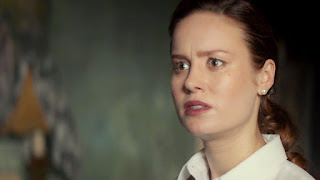Monday, August 7, 2017
The Glass Castle
Destin Cretton is anything but a household name. Yet, the gifted filmmaker turned heads with his massively overlooked 2013 drama, Short Term 12. The effort bridged together Cretton's singular story and vision with the remarkable acting talents of Brie Larson. Since then Larson has gone on to win an Academy Award (Room), but her career comes full circle in her latest collaboration with Destin Cretton in the adapted film The Glass Castle.
Told non-chronologically through various flashbacks, The Glass Castle follows the unconventional childhood of gossip columnist and eventual Best-Selling author Jeannette Walls (Larson). Prior to her career as a writer, Walls grows up under the dysfunctional supervision of her alcoholic father (Woody Harrelson) and her amateur artist mother (Naomi Watts). But as Jeannette and her siblings begin to mature and fully comprehend their squatter-lifestyle and impoverished upbringing, they must work together to escape the clutches of their deadbeat parents.
Destin Cretton's The Glass Castle serves as a heavy drama that illustrates the director's keen vision and his cast's stellar performances. There are many captured shots scattered throughout the film that transcend the normal standards of direction, reminding us just how impressive Cretton truly is. Likewise, Brie Larson continues to shine and reinforce her standing as one of the best actresses alive today. And her counterpart, the underappreciated Woody Harrelson, always has a knack for commanding the screen. Witnessing these two titanic performers deliver the goods over and over again for more than two hours is what keeps this film from crumbling at the hands of its weaker elements.
For starters, The Glass Castle begins its constant rewinding of time through flashbacks with a fluid approach that effectively links the present with the past. However, eventually, the film ditches its smooth transitions and forcefully breaks from its underlying format. And as Jeannette's character begins to truly ponder the joy vs. sorrow of her childhood, deciding whether her father was an inspiration or a burden, the flashbacks become a hokey and contrived element rather than a useful and informative tool. But even through much of the screenplay's over-extension and sloppiness, exceptional direction and performances keep the audience connected to this powerful tale of familial struggle.
Stars: 2 and a half stars out of 4
Grade: B-
Subscribe to:
Post Comments (Atom)

I really like this blog..very nice blog For more information aboutlatest telugu movie ratings
ReplyDelete